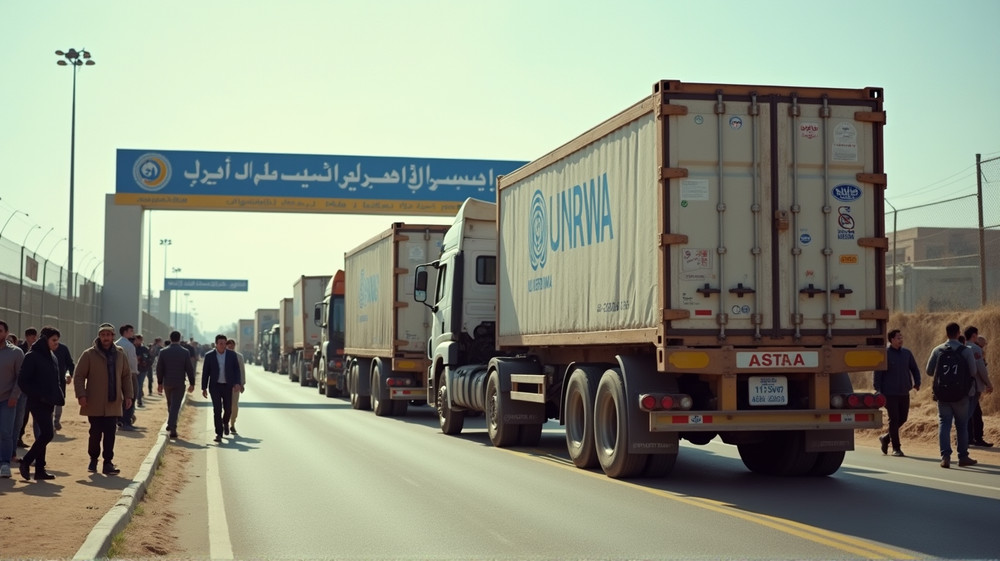In the heat of humanitarian crisis and escalating tensions, the United Nations Relief and Works Agency for Palestinian Refugees (UNRWA) has made an impassioned plea for the blockade on Gaza to be lifted. With warehouses stacked with enough food to sustain the enclave’s entire population for over three months, the cry for action is louder than ever.
An Awaiting Lifeline: Food Stockpiled but Inaccessible
UNRWA has effectively prepared to address Gaza’s dire needs by amassing significant food supplies. These resources sit ready in facilities such as those in Al Arish, Egypt, poised to provide crucial sustenance. Despite this preparation, access remains barred as bureaucratic and political issues persist.
Voices from the Heart: The Struggle of Gaza’s Citizens
In the heart of Gaza, life hangs by a thread for many, including 14-month-old Nur El Sarsak, who grapples with the ravages of malnutrition. Her story isn’t isolated; it’s a testament to the numerous infants and adults desperately in need of these anchored supplies, stories echoed throughout the streets and homes under siege.
A Call for Humanity: UNRWA’s Hope and Urgency
As UNRWA emphasizes the need to “Open the gates,” the agency underscores the grave urgency in freeing these life-saving supplies. Their voice resonates with a broader call to action—permissions to allow humanitarian work to proceed, unfettered, for the survival of over 2 million individuals who yearn for relief from the prolonged shortages.
Political Barriers and Human Costs
The complexities of political and military engagements have resulted in tragic figures, with the death toll climbing, impacting predominantly women and children. The full blockade initiated in March has led to severe repercussions, compounded by the controlled trickle of aid since May under the controversial Gaza Humanitarian Foundation, often bypassing essential UN agencies.
Growing Global Voices: Advocacy for Change
With significant international pressure mounting, there exists an emergent consensus for direct interventions. The need for opening humanitarian corridors and allowing vital supplies to reach those in dire straits is not just a logistical necessity but a moral imperative, a point reiterated by global stakeholders demanding justice and humanity.
As stated in Middle East Monitor, the urgency to act is a clarion call to the international community, reminding us that in times of crisis, proactive intervention remains our shared responsibility.
By bridging political divides, empowering ground-based initiatives, and ensuring the free movement of essential aid, a glimpse of hope might emerge for families like that of Nur El Sarsak, living on hope’s fragile edge.












